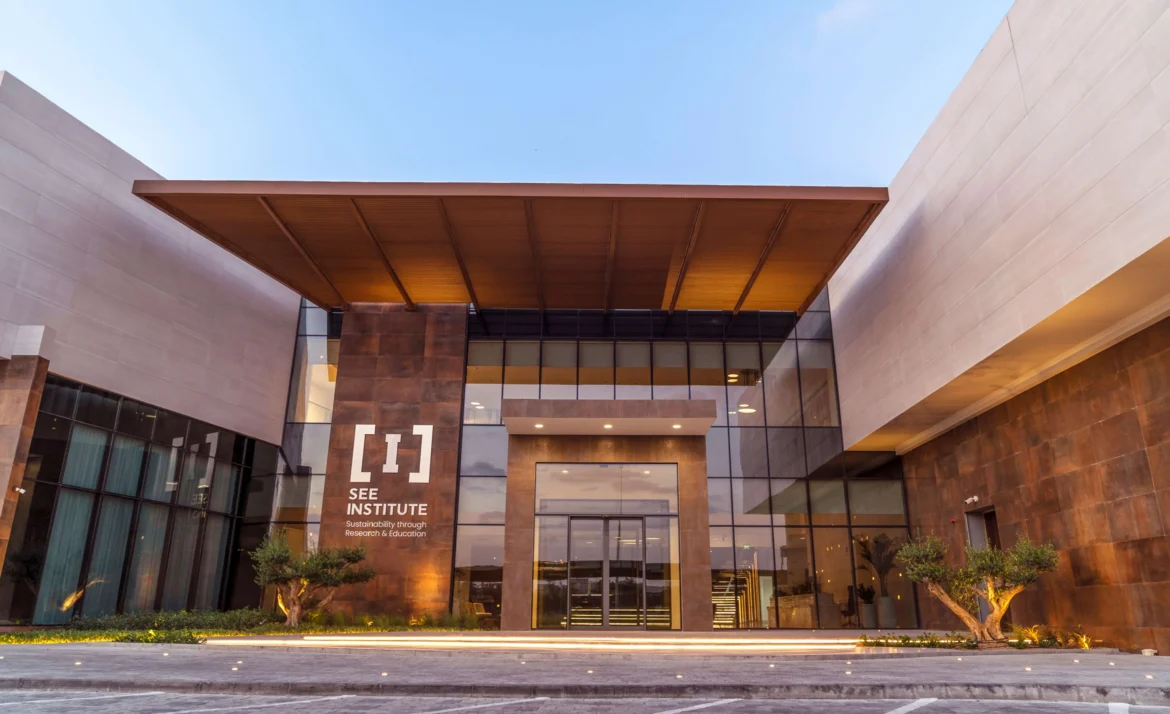SEE Institute has unveiled its 2030 net zero emissions building. Situated within The Sustainable City in Dubai, the 5,000 sqm net-zero emissions building is on track to achieve its net zero emissions goal by 2030, the company shared, offsetting both embodied and operational emissions.
Further, the Institute said that it is generating 300 per cent of its energy demand from renewable sources, “effectively eliminating all operational greenhouse gas emissions.”
A biogas plant will also test waste to cooling technology, providing an absorption chiller to fulfil 40 per cent of the building’s cooling requirements.
The building was developed by SEE Holding, featuring a design that prioritises demand-side management through a combination of passive and active design elements.
This approach, it said, extends to reducing embodied carbon by utilising optimised structural systems, low-carbon concrete, lightweight façades, and incorporating recycled and locally sourced materials.
SEE Institute’s building also features integrated solar technologies, solar-active façade system, hybrid cooling systems, and an integrated building management system that monitors all operations, as well as electric vehicle (EV) parking stations, powered directly from solar energy.
Faris Saeed, Chairman & CEO of SEE Holding and Founder of SEE Institute, commented: “Our decades of experience in sustainable development have been translated into the design of this remarkable building, which stands as a testament to the ways we can accelerate progress towards a net zero emissions future. This building isn’t just a physical structure; it’s a bridge to a sustainable future. We are committed to leveraging this space to transfer our knowledge and expertise to other stakeholders, equipping them with the tools and insights they require to meet their net zero goals, aligned with the ‘UAE Net Zero by 2050 Initiative’ and the pressing global urgency to mitigate climate change.”



